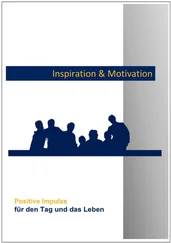Burkhard Gniewoszreceived his diploma in psychology from the University of Jena, Germany, in 2002. He is currently Professor of Quantitative Research Methods in educational science at the Paris‐Lodron‐University in Salzburg, Austria. His major field of research concerns socialization processes during adolescence. He mostly focuses on contextual (family and school) influences on adolescents’ political and academic development. In recent years, his research interest centered on students’ motivation within a developmental context.
Saida Heshmatiis an Assistant Professor of psychology at Claremont Graduate University. She is a positive developmental psychologist interested in how optimal development unfolds over time in diverse samples, especially in at‐risk adults. Using her expertise in positive relationships and love, human development, and state‐of‐the‐art analytical methods, she examines authentic or embedded assessments of large datasets related to individual and group characteristics that influence everyday well‐being and positive development. Her work has brought together a suite of measurement tools such as experience sampling methods, observational analysis, cognitive psychometric modeling, and wearable physiology monitors in the service of understanding how individuals’ sense of well‐being – and love as one component of well‐being – unfolds moment‐to‐moment in their everyday lives.
Jessica Kanskyis a sixth‐year graduate student in clinical psychology at the University of Virginia and graduated summa cum laude with a BA in psychology from the University of Pennsylvania. She will be completing her doctoral internship at the Charleston Consortium this year. Her research focuses on psychosocial predictors and outcomes of romantic experiences from adolescence through adulthood. Her interest is in the role of romantic relationships in optimal interpersonal and individual development and well‐being and she has recently published several reviews of romantic development across the lifespan. She has received numerous accolades for her teaching, receiving the University’s only Distinguished Teaching Award for Social Sciences in 2019 and the Society for a Science of Clinical Psychology Outstanding Student Teacher Award in 2020.
Shari Young Kuchenbeckeris Associate Director and cofounder of the Western Positive Psychology Association (WPPA), Claremont, California. Her BA is from Stanford and PhD is from UCLA. She chose to tenure‐retire at the age of 32 to raise three kind efficacious children – one DVM and two PhDs. She continues to write, teach/do research at SoCal universities, presenting at conferences with colleagues and students, many now PhDs, EdDs, MAs, and parents. Her Stanford role model and lifelong mentor was Dorothea Ross. Albert Bandura, her academic grandfather, and she began regular “Salons” across the last two decades. Collaborating with Phil Zimbardo, Al’s and Phil’s positive educational role models, theories, research legacies, and their social activism inspired the chapter included here.
Marija Pejičićis a PhD student and teaching assistant in the Department of Psychology, Faculty of Philosophy, at the University of Niš. Her teaching and research areas focus mainly in the area of interpersonal relations, specifically, communication and emotional experience.
Vesna Petrovićis a Professor of Psychology at the Union University of Belgrade, where she has served as head of the master’s program in psychotherapy. She is an integrative psychotherapist, founder and director of the Serbian Association for Integrative Psychotherapy, and national representative of Serbia in the European Association for Psychotherapy. Her research has addressed issues in mental health, positive psychology, trauma psychology, integrative psychotherapy, and systemic family psychotherapy.
Wendy‐Ann Smithis a registered psychologist in her native country Australia and her current home France. She is the co‐editor of Positive Psychology Coaching in the Workplace (in press) and author in the domains of positive and coaching psychology, specifically in the domains of positive leadership, strengths and emotions coaching, and coaching for high quality relationships. She is a reviewer for the European Journal of Applied Positive Psychology and co‐leads the French chapter for the International Society for Coaching Psychology. She is an executive coach at high ranking international and French business schools and teaches in the domains of positive and coaching psychology at both French and UK academic institutions. She founded her first coaching psychology practice in Australia, Inspirations Coaching and Development and has translated that to France with her positive psychology business Eclorev Coaching.
Robert J. Sternbergis a Professor of Human Development at Cornell University and honorary professor of psychology at the University of Heidelberg, Germany. His BA is from Yale, his PhD from Stanford, and he holds 13 honorary doctorates. He is a past winner of the Grawemeyer Award in Psychology and the William James and James McKeen Cattell Awards from the Association for Psychological Science. He is past‐president of the American Psychological Association and the Federation of Associations in Behavioral and Brain Sciences. He has been cited over 184,000 times in the professional literature, with an h index of 207. He is the author of Adaptive Intelligence (in press).
Sara Wilfis a doctoral student in the Department of Social Welfare at the University of California, Los Angeles. She researches the development and practice of youth civic engagement with a focus on youth activism on social media. She received her BA from Brown University and her MPA from Columbia University.
Everett L. Worthington Jr.is Commonwealth Professor Emeritus at Virginia Commonwealth University. He continues an active research, writing, and speaking career studying forgiveness, humility, hope, gratitude, patience, and other positive psychology topics. He originated the REACH Forgiveness intervention, which has been investigated in over 30 randomized control trials and continues to be studied and used around the globe. He also continues to do research in the hope‐focused approach to couple enrichment and therapy.
Laura Wray‐Lakeis an Associate Professor of social welfare in the Luskin School of Public Affairs at University of California, Los Angeles. She received her PhD in human development and family studies from Penn State University. Her research focuses on how and why young people become civically engaged. She has published over 60 research articles and book chapters, including a 2020 SRCD Monograph on pathways to civic engagement among urban youth of color. Her work uses multiple methodologies and takes developmental, cultural, and contextual perspectives in studying youth civic engagement.
Dragan Žuljević, PhD, is an Assistant Professor at the Faculty of Law and Business Studies, Dr Lazar Vrkatić, Novi Sad, Serbia. He received his PhD in psychology with a concentration in psychotherapy treatment evaluation. He authored over 100 research reports and publications focused on psychological treatment evaluation, resilience, mental health, and positive psychology. His current research is focused on practice and evaluation of acceptance and commitment therapy and contextual behavioral science.
This book would not have been possible if not for the contributions and dedicated commitment from a number of persons. We express our deepest and sincerest thanks to the following individuals for their invaluable contributions toward the successful completion of this volume. First, we say thanks to all of our diligent contributors: Mihaly Csikszentmihalyi, Daniel Batson, Robert J. Sternberg, Massimo Agnoletti, Celina Benavides, Ilona Boniwell, Jolanta Burke, Gian Vittorio Caprara, Ed Diener, Stewart I. Donaldson, Scott I. Donaldson, Sandro Formica, Burkhard Gniewosz, Saida Heshmati, Jessica Kansky, Shari Young Kuchenbecker, Marija Pejičić, Vesna Petrović, Wendy‐Ann Smith, Sara Wilf, Everett L Worthington Jr., Laura Wray‐Lake, and Dragan Žuljević. A special thanks to Steve Dwarika, Mala Ramesar, and Shenelle Matadeen for their administrative assistance.
Читать дальше












